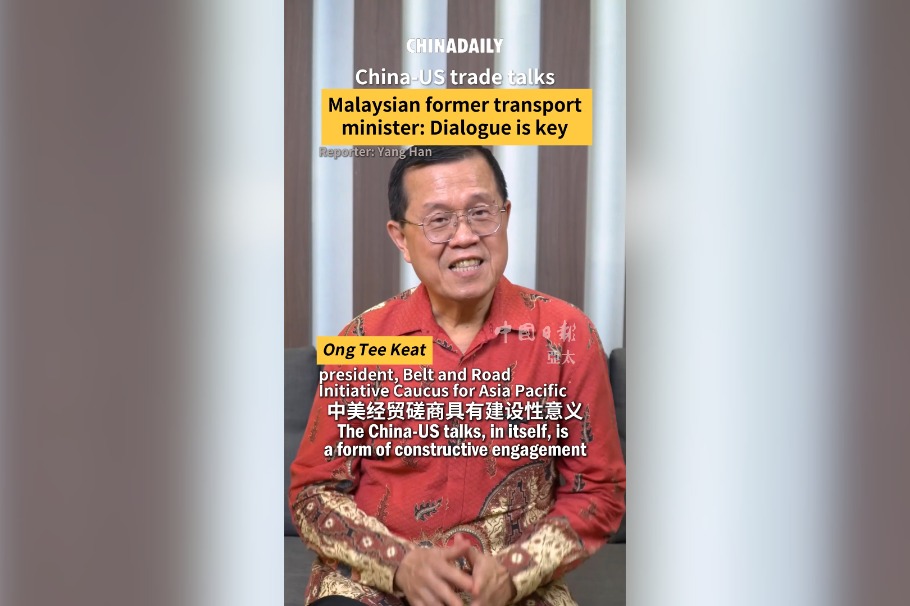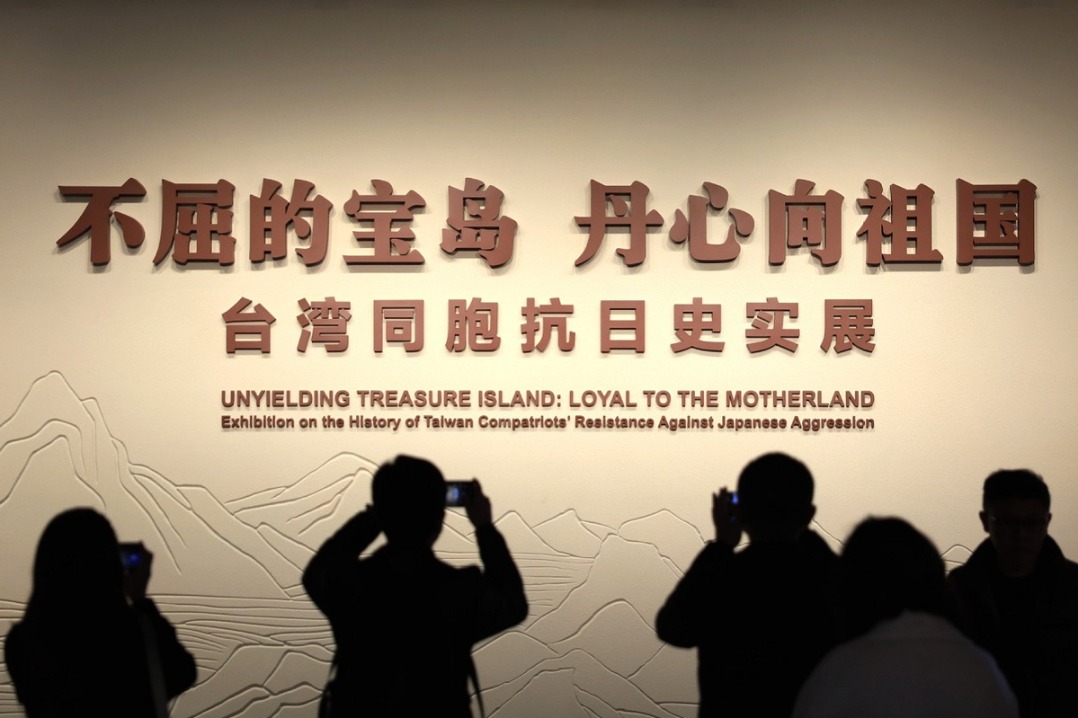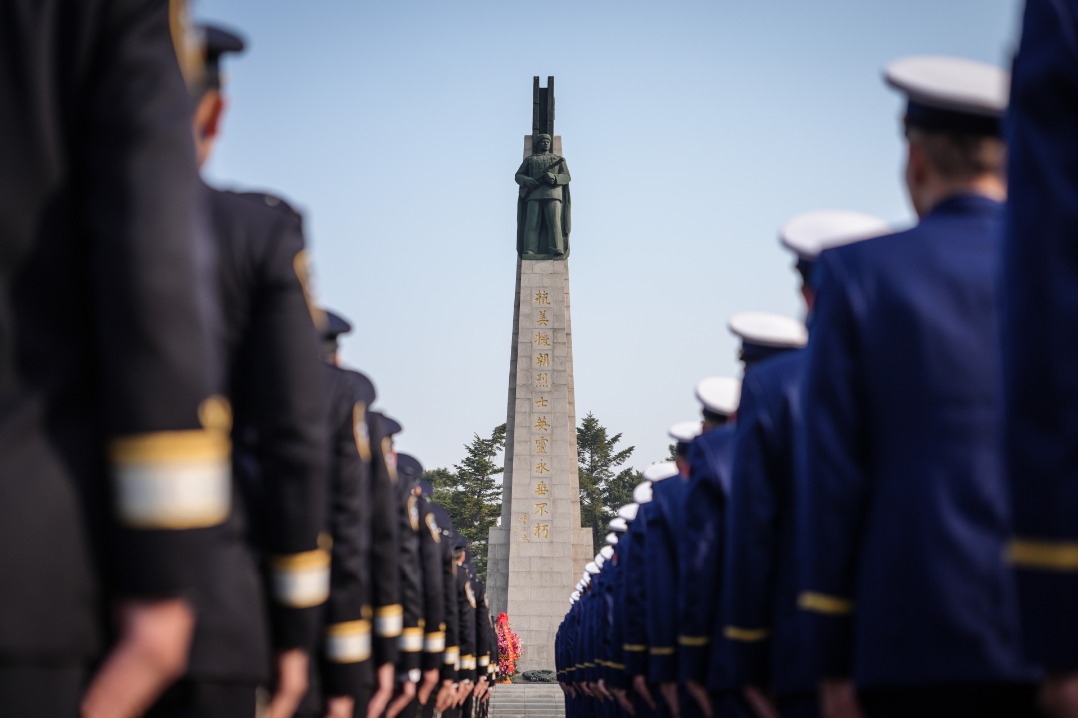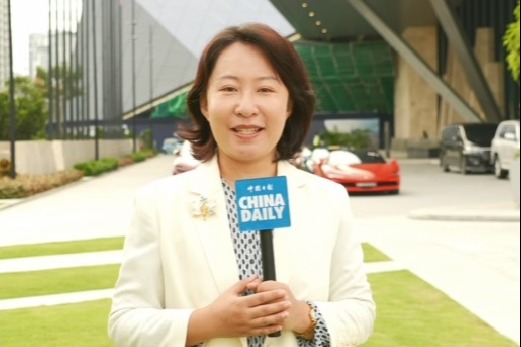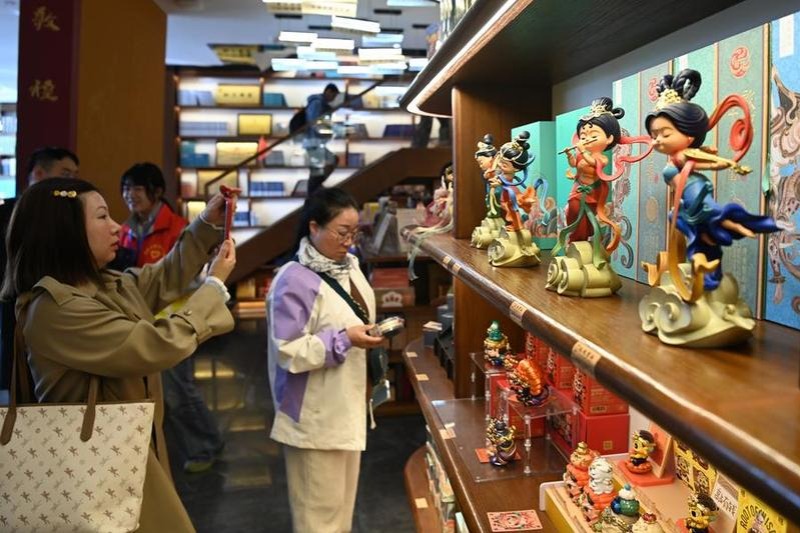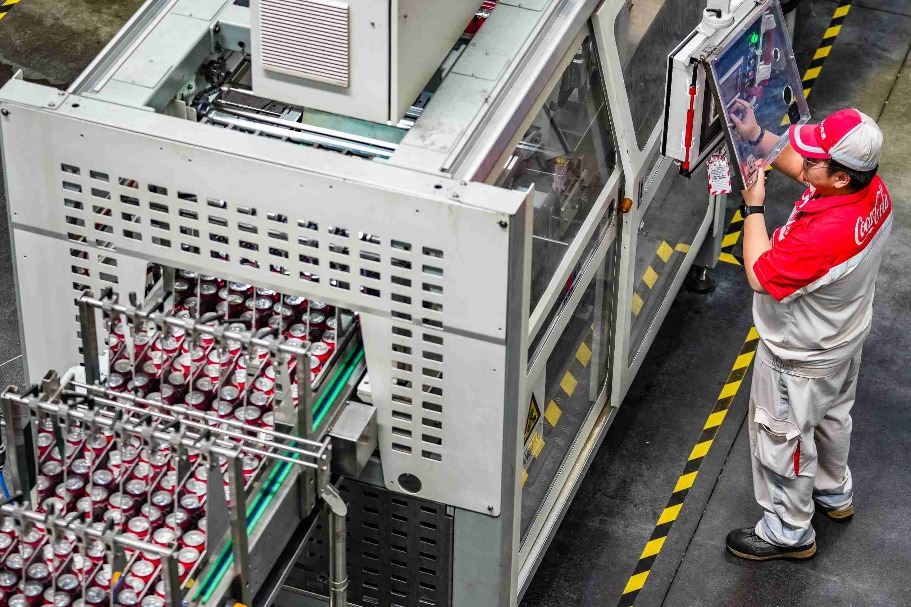The man who journeyed to THE HEART OF PEKING OPERA
Lebanese resident of Beijing sets himself ambitious goal to master the intricate nuances of the art form, Chen Nan reports.

The adage about Peking Opera still rings true: one minute of performance on stage requires 10 years of practice offstage. This sums up the rigorous training required for Peking Opera, the vivid, highly stylized ancient Chinese art form with a history of more than 200 years, which combines music, dance, drama, acrobatics and martial arts.
For Nadim Diab, or Li Long as his Chinese name, a Lebanese who lives and works in Beijing, he seems to have the adage as his daily routine as he takes part in a 100-day training program by professional Peking Opera actors and actresses.
He set a goal of performing in a Peking Opera at the end of his training to better experience and understand the ancient art form.
On Dec 1, Diab, along with Peking Opera actor Yu Huikang, performed an excerpt of Peking Opera piece, San Cha Kou, or At The Crossroads, which follows Ren Tanghui, a warrior escorting Jiao Zan, a Song Dynasty (960-1279) general, on his way to exile after Jiao was framed for a crime. Both Ren and Jiao spent the night at an inn owned by Liu Lihua, who mistakes Ren for an assassin set to murder Jiao. At the same time, Ren has a similar suspicion about Liu. In darkness, they fight fiercely. In the excerpt, Diab plays the role of Ren and Yu plays the role of Liu.
"Few people understand Peking Opera, though many have watched or heard about Peking Opera," Diab says after his performance at Mei Lanfang Grand Theater in Beijing.
"Beauty and difficulty are two sides of the same coin in Peking Opera. Behind each peak you conquer in Peking Opera is an even taller mountain waiting to be tackled."
The performance concluded a 12-episode documentary series, titled Mission 100, chronicling Diab's journey into Peking Opera through the art form's strict and demanding training process.
"When people go to watch a Peking Opera show, they expect to witness a show like no other and they never walk away disappointed. Stellar performances are a guarantee in Peking Opera, but the behind-the-scenes workings are an untold story," says Diab.
"The pain, the sacrifices, the long hours of daily practice and the constant pursuit to push one's physical and mental limits to the extreme. Every performer I met has poured their blood, sweat and tears into this craft and makes a conscious decision every day to wake up and do it all over again."
For Diab, not a single day of training was without a challenge. Five professional performers from the China National Peking Opera Company worked with Diab, collectively and separately, during training and practice spanning three months.
Diab started his 100-day training after meeting up with his mentor, veteran Peking Opera actor Liu Dake, who specializes in hualian roles (literally translated as painted face, referring to actors playing male roles with striking looks and high social position). Liu introduced basic knowledge about Peking Opera and closely followed up on Diab's progress, dispensing advice and guidance and helping Diab through difficult times by sharing his stories.
The first training session took place when Diab met Zhu Lingyu, a 25-year-old talented and diligent wusheng (male martial arts performer). Zhu, who started practicing martial arts as a child and later studied Peking Opera at the age of 10, was Diab's main teacher, accompanying him from the first day of training to the final performance.
Yu, an actor who specializes as a wuchou (martial arts clown), helped Diab better understand his stage character, perfect his moves, especially the ones that required coordination between them on stage, like sword fighting scenes and synchronous cartwheels at the end of the show. The others are actress Bai Weichen, who specializes in wudan (female martial arts), and He Yishan, also a wusheng actor.
"All of them are very patient with me and they were the reason that this mission was possible and the grand finale owes its success to them," says Diab, mentioning that Bai told him that "Peking Opera is a like a small door. Unless you unlock it, you won't realize the vast space that lies behind it".
"The stage setting is minimalistic and the plots are relatively simple so the onus of entertainment falls squarely on the performers and their artistry," he says, adding that he had physical therapy and multiple hospital visits on three separate occasions during the training.
The 32-year-old Diab, who came to China in 2012 for his master's degree in global business journalism at Tsinghua University in Beijing, had his first encounter with Peking Opera a few years back when he watched a workshop online that Mu Yuandi gave in the United States in 2014. The Shanghai-based actor Mu specializes in the art of nandan (a male who plays a female role). This tradition was forged out of necessity. For much of its history in the old, feudal society, women were forbidden to perform Peking Opera.
"He started from zero to perform as a Peking Opera actor, which was very difficult, such as leg stretching exercises," says Liu, 41, who, born and raised in the city of Jilin in Jilin province, was trained to become a Peking Opera actor as a child by his parents, both professional Peking Opera performers.
"It was also a fresh experience for me as well to train a non-Chinese to become a Peking Opera actor. It's not just about teaching him to move but also about thinking as a Peking Opera actor," says Liu.
"The sophisticated ancient art form is the essence of Chinese culture, which shows traditional Chinese values, such as loyalty, modesty and honesty. Even for professional performers, who spent years learning and practicing, the art form is much more than the primary appeal it appears to be, like brilliant costumes, the acrobatics and jaw-dropping skills."
Peking Opera, also known as jingju in Chinese, was declared an Intangible Cultural Heritage of Humanity by UNESCO in 2010.
In 1790, when four Hui Opera troupes visited Beijing as part of celebrations for the 80th birthday of the Emperor Qianlong (1711-99), they stayed in the south of the city. Hui opera, or huiju, is a form of Peking Opera from Anhui province. In about 1840, Peking Opera began to formally take shape, growing rapidly during the reign of Empress Dowager Cixi (1835-1908), a Chinese opera lover. After this, the art form went from strength to strength, with troupes being formed in Beijing, Tianjin and Shanghai.
Peking Opera had its heyday with star performers popularizing the art form across the country as well as abroad. One of the best-known Peking Opera master is Mei Lanfang, a nandan performer, who was the first actor to present Peking Opera outside China. He toured the US in 1930, visiting New York, Chicago and San Francisco. The tour lasted five weeks, rather than its originally scheduled two, due to the great acclaim he received.
Zhang Huoding, one of the most famous contemporary Peking Opera performers, caused a sensation in 2015 by performing the famous Peking Opera pieces, The Legend of the White Snake and The Jewelry Pouch, in New York.
There were also days when Peking Opera, like many traditional art forms, faced decline.
Liu, who found it hard to make ends meet, even considered quitting. "I once attended a course to learn about computer programming, and considered getting a new job," recalls Liu.
In 2006, he got a role in award-winning composer Tan Dun's opera, The First Emperor, which, commissioned and staged at the Metropolitan Opera in New York, was directed by Chinese filmmaker Zhang Yimou and performed by Placido Domingo.
"When the audiences reacted warmly to Peking Opera, I was impressed. I felt then that I should not give up the art form," recalls Liu, who moved to Beijing and joined in the China National Peking Opera Company in 2008.
Yi Ling from the China National Peking Opera Company's foreign affairs office says that the company has been launching online programs to expand fan base not only in China but also abroad.
"We are glad to see a revival of Peking Opera during the past few years, especially the young people who come to see our shows both in theaters and online," says Yi.
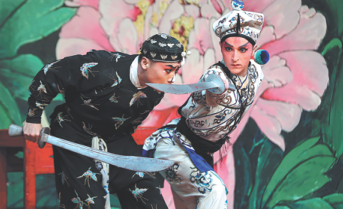
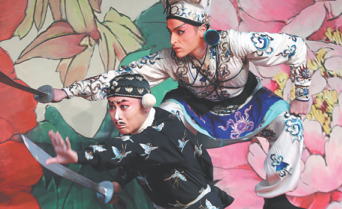
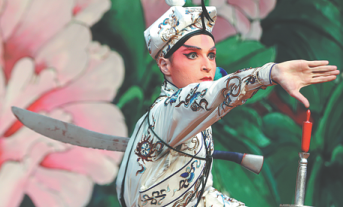
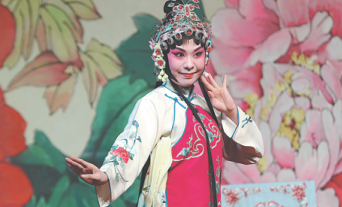
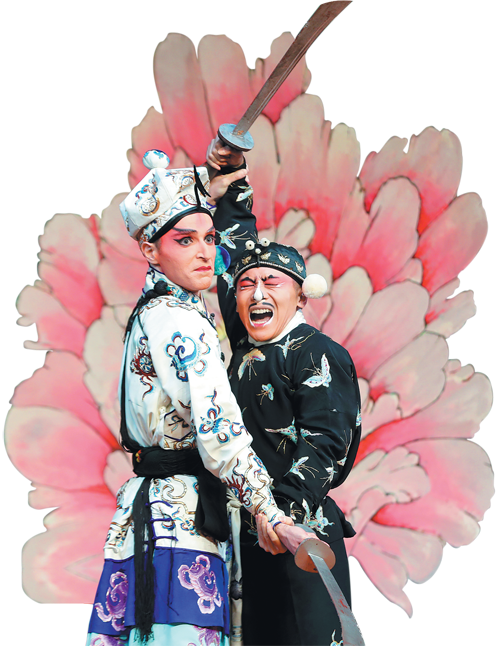
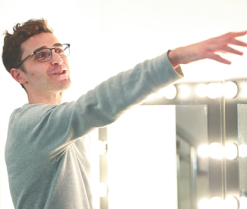
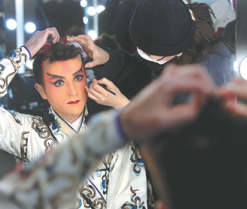
Today's Top News
- Europe hit by early outbreaks of bird flu
- 'Two suspects' arrested for Louvre jewels heist
- Nation marks 80th anniversary of Taiwan's restoration amid calls for reunification
- China, US reach 'preliminary consensus'
- China, Singapore eye deeper cooperation
- Kuala Lumpur talks another step to properly address respective concerns and stabilize ties

















